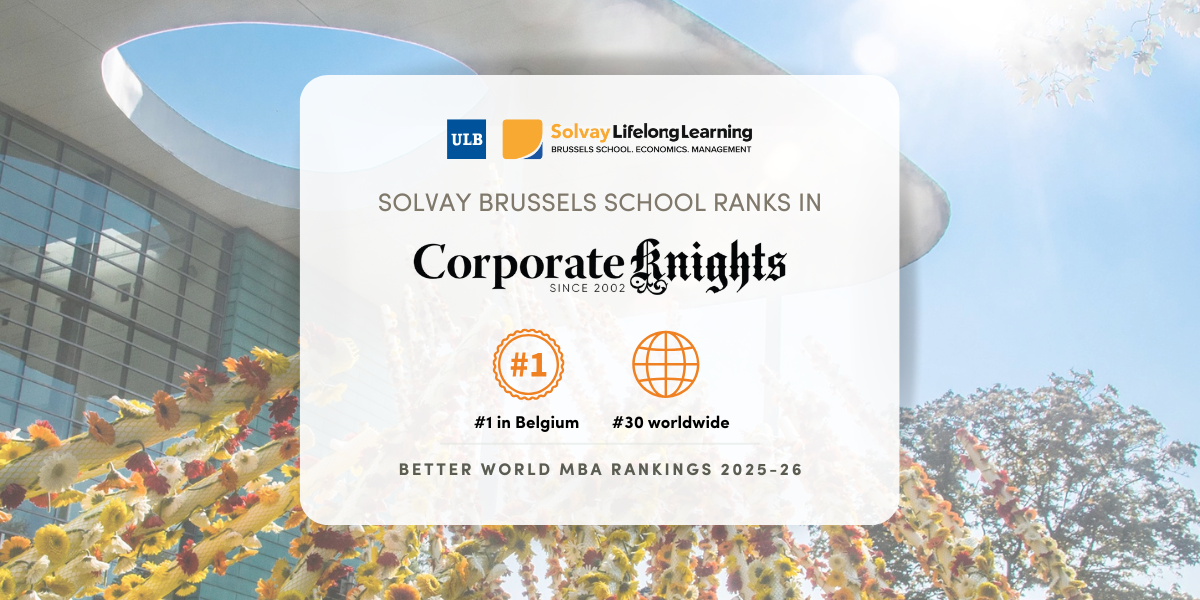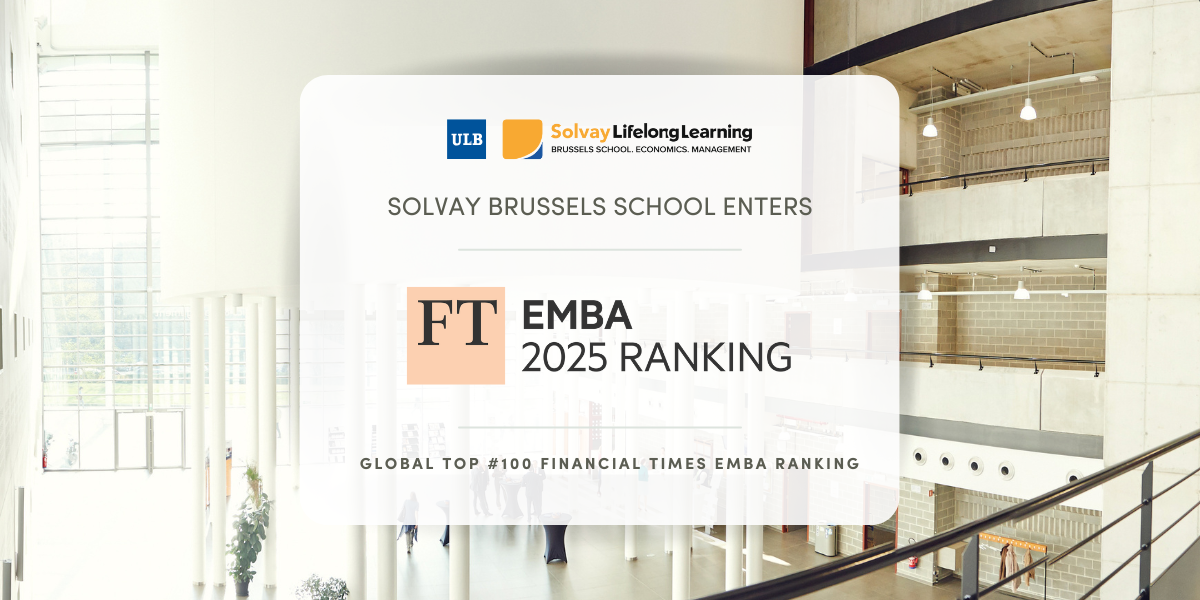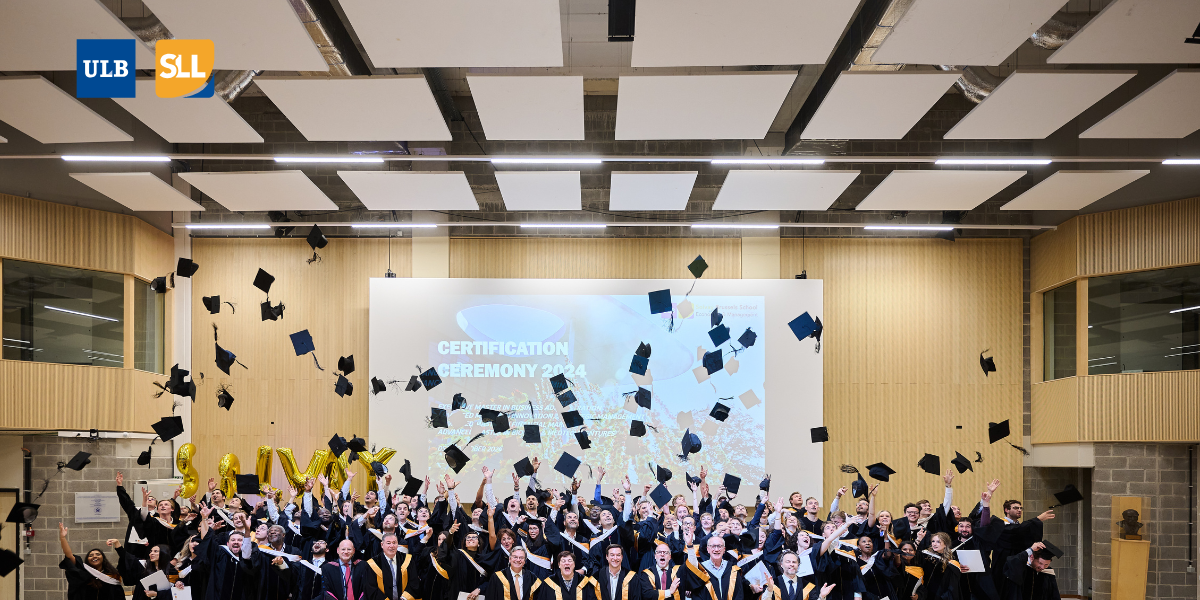Learn more about us.
What's the Difference Between an EMBA & an MBA?
Solvay Lifelong Learning Editorial Team |Author
Our Editorial Team brings you the latest in blog posts covering business, finance, sustainability, and programme insights from Solvay Lifelong Learning!

Stay connected
Never miss the latest insights, blogs and news. Subscribe to our newsletter.
EMBA vs. MBA: What’s the Difference and Which One Is Right for You?
When exploring postgraduate business education, professionals often weigh the choice between a Master of Business Administration (MBA) and an Executive MBA (EMBA). While both degrees offer a strong foundation in business and management, they are designed for different profiles, career stages, and learning objectives. Understanding the distinction is essential for choosing the programme that best aligns with your goals and lifestyle.
Audience and Career Stage
MBA programmes are typically targeted at early- to mid-career professionals, often with 3–5 years of work experience. Candidates might be looking to pivot careers, build a solid foundation in general management, or accelerate their progression into leadership roles.
EMBA programmes, on the other hand, are tailored for more experienced professionals—usually with 10+ years of work experience—who are already in managerial or executive roles. Participants are often seeking to deepen their strategic and leadership capabilities, broaden their network, or prepare for board-level responsibilities without stepping away from their careers.
Programme Structure and Flexibility
MBAs are often full-time and immersive, requiring participants to take a career break or sabbatical. The format allows for internships, international exchanges, and student clubs—elements that support career switching and experiential learning.
EMBAs are designed for working professionals, offering a flexible, part-time structure. Classes are typically held on weekends or in modular blocks, allowing participants to continue working full-time while applying what they learn in real time. This format demands strong time management but offers immediate value to both participant and employer.
Peer Learning and Networking
In an MBA, participants benefit from a diverse cohort in terms of nationalities and industry backgrounds, but with relatively similar levels of experience. Networking is forward-looking, focused on future potential.
In an EMBA, peer learning is a key strength. Participants bring significant real-world experience to the classroom, fostering rich discussions and cross-industry insights. The network tends to be more senior, opening doors to high-level collaborations and strategic opportunities.
Curriculum and Focus
Both MBA and EMBA programmes cover core business disciplines—finance, marketing, strategy, operations, and leadership. However:
-
MBA programmes often emphasise foundational theory and skill-building, with options for specialisation.
-
EMBA curricula are more strategic and reflective, with an emphasis on leadership, executive decision-making, innovation, and navigating complexity. Many also include coaching, personal development tracks, and industry integration.
Investment and Return
An MBA is a significant investment of time and money, often justified by a career pivot or leap in earning potential. Graduates typically re-enter the workforce at a higher level or in a new function or geography.
An EMBA is positioned as a catalyst for senior-level growth, entrepreneurial ventures, or strategic transitions. Many participants are sponsored by their employers or use the degree to consolidate their leadership trajectory.
In Summary:
| Feature | MBA | EMBA |
|---|---|---|
| Target audience | Early- to mid-career professionals | Senior professionals & executives |
| Experience level | 3–5 years | 10+ years |
| Format | Full-time (often 1–2 years) | Part-time (weekend/modular) |
| Peer profile | Aspiring leaders | Established leaders |
| Learning focus | Business fundamentals & specialisations | Strategy, leadership, coaching |
| Career impact | Career change or advancement | Senior progression or transformation |
Choosing between an MBA and an EMBA comes down to where you are in your career, what you want to achieve, and how you want to learn. Both are powerful tools, but they serve different paths.
Have you decided that an EMBA is the way to go for your career? We have just the thing for you!
Stay connected
Never miss the latest insights, blogs and news. Subscribe to our newsletter.

Newsletter subscription
Never miss the latest insights, blogs and news
Subscribe to our newsletter and never miss the latest insights, events and blogs.
What other people like
Related blogs
Our Editorial Team brings you the latest in blog posts covering business, finance, sustainability, and programme insights from Solvay Lifelong Learning!
6/11/25
Our Editorial Team brings you the latest in blog posts covering business, finance, sustainability, and programme insights from Solvay Lifelong Learning!
13/10/25

Bruno is Senior Advisor and Ambassador for Innovation at EY and the Academic Director of the Solvay EMBA and Accelerated Management Programme. He is an expert in strategy, Entrepreneurship and Innovation.
9/04/25


